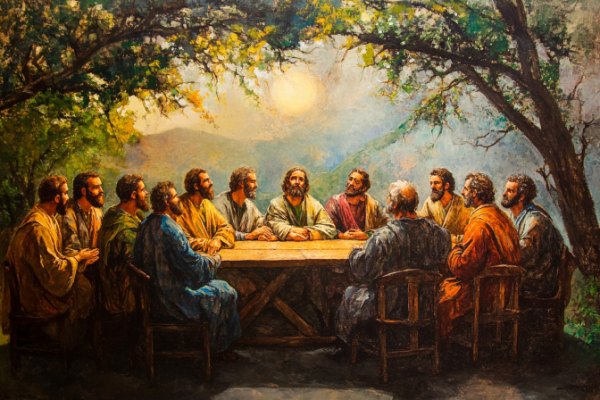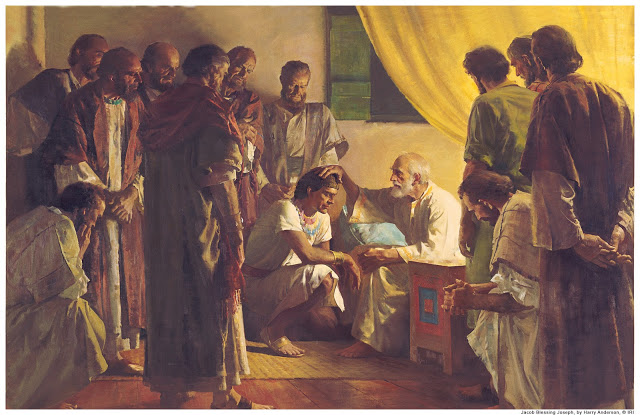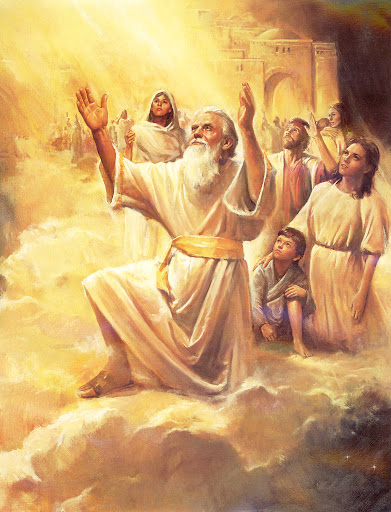Question
Gramps,
Why call 12 apostles? Does this correlate with the 12 tribes of Israel?
Kim
Answer
Kim,
The concept of twelve apostles originates from the New Testament, where Jesus Christ chose twelve disciples to minister alongside Him. According to Matthew 10:1-4, Jesus selected twelve individuals, granting them authority to preach and perform miracles. This selection mirrored the twelve tribes of Israel, signifying a new foundation for a spiritual Israel in the Messiah’s followers.
The twelve apostles were entrusted with the “keys of the kingdom,” a term denoting authority to govern and direct the affairs of the Church. This authority was foundational, establishing a precedent for apostolic leadership that emphasizes both spiritual and administrative responsibilities. The apostles were not merely followers; they were key figures in the dissemination of Jesus’ teachings and the establishment of the early Christian community.
In the early 19th century, The Church of Jesus Christ of Latter-day Saints was founded, seeking to restore the original Christian church as established by Jesus Christ and His apostles. Central to this restoration is the restoration of the Quorum of the Twelve Apostles, modeled directly after the biblical Twelve. This structure was affirmed through revelation to Joseph Smith, the Church’s founding prophet, emphasizing continuity with early Christianity.
The modern Quorum of the Twelve Apostles serves as the highest governing body in the Church, second only to the First Presidency. Members of this quorum are considered prophets, seers, and revelators, tasked with guiding the worldwide Church. Their role includes missionary work, church governance, and spiritual leadership, reflecting the multifaceted responsibilities of their biblical counterparts.
The choice of twelve apostles is deeply symbolic, aligning with biblical tradition and reinforcing the Church’s connection to its foundational roots. The number twelve is significant for several reasons:
- Connection to the Twelve Tribes of Israel: The twelve apostles represent a new Israel, a spiritual continuation of the twelve tribes. This parallel underscores the belief in a restored covenant with God, mirroring the Old Testament promises.
- Completeness and Authority: In biblical numerology, twelve signifies completeness and divine authority. By establishing twelve apostles, the Church emphasizes the fullness of its leadership and its mission to encompass the complete message of the Gospel.
- Organizational Structure: The number twelve provides a balanced and manageable leadership structure, facilitating effective governance and decision-making within the global Church.
Some have raised questions regarding the existence of twelve apostles in Jerusalem and twelve in the Americas, as recorded in the Book of Mormon, potentially implying a total of twenty-four apostles. However, it’s crucial to distinguish between apostles and disciples in different dispensations.
In the ancient Americas, after Christ’s resurrection, He called twelve disciples to minister to the Nephite people. These individuals were designated as ministering disciples, not apostles, highlighting a different role and authority compared to the apostles in Jerusalem. The distinction lies in their respective callings and the specific needs of their communities during different dispensations.
Furthermore, the modern-day Church maintains a single Quorum of Twelve Apostles, adhering to the precedent set by the New Testament apostles and the restored Church structure. This consolidation ensures unity in leadership and maintains the symbolic significance of the number twelve.
The question arises whether Jesus might have called apostles in other lands beyond Jerusalem and the Americas. While scripture primarily documents the twelve apostles in Jerusalem and the twelve disciples in the Americas, there is no definitive evidence of additional apostles in other regions. The restoration of the Quorum of the Twelve Apostles in the Church is seen as the re-establishment of this original authority on a global scale.
The focus remains on maintaining twelve apostles to uphold unity and continuity with the early Christian Church. Expanding the number of apostles could dilute this structure and the associated symbolism, which is integral to the Church’s identity and governance.
Gramps







